
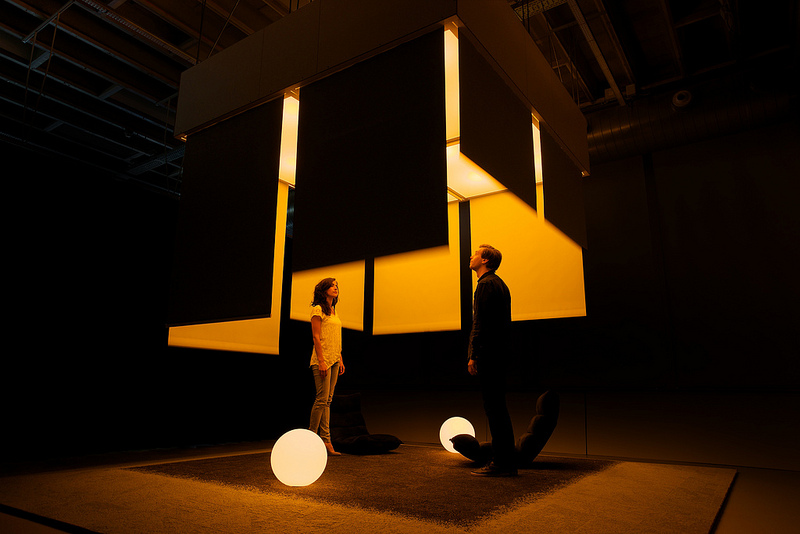
In a world where work-induced stress is an increasingly common phenomenon, Philips has designed an experience prototype to tackle this problem. The Adaptive Relaxation Space immerses users in a dynamic environment where the area and soundscape adapt to their spatial configuration. Sensors underneath the floor trigger partitioning segments from the ceiling to enclose different areas, while ambient audio and light patterns also react to where users stand. By moving around, the design allows users to build their own individual space, one that has been created on an intuitive and subconscious level.
For this nature-inspired prototype, Philips was funded by the Dutch government’s Creative Industry Scientific Programme (CRISP). The design is initially aimed towards professionals that are commonly afflicted by stress, such as healthcare workers and teachers. Eventually the company hopes that the concept can also be adapted into stressful environments such as airports, mental healthcare facilities and hospitals. Philips has initiated this project as a part of its ongoing ambition to innovate in healthcare and wellbeing.
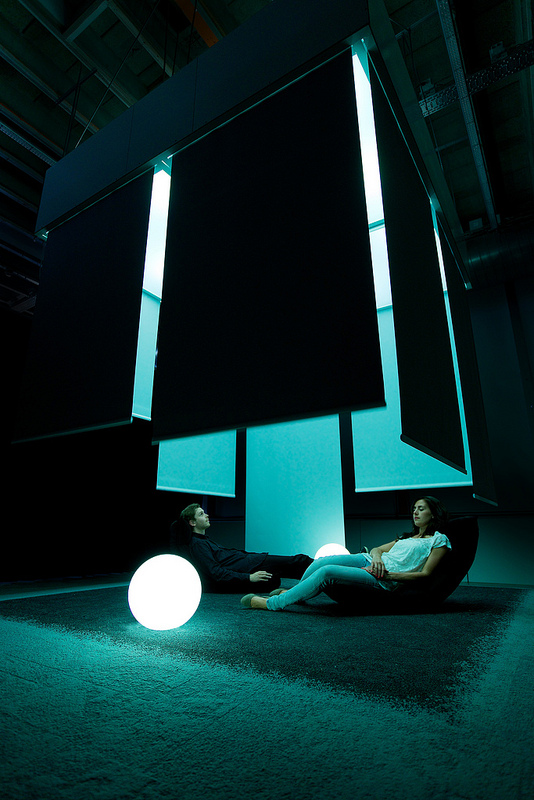
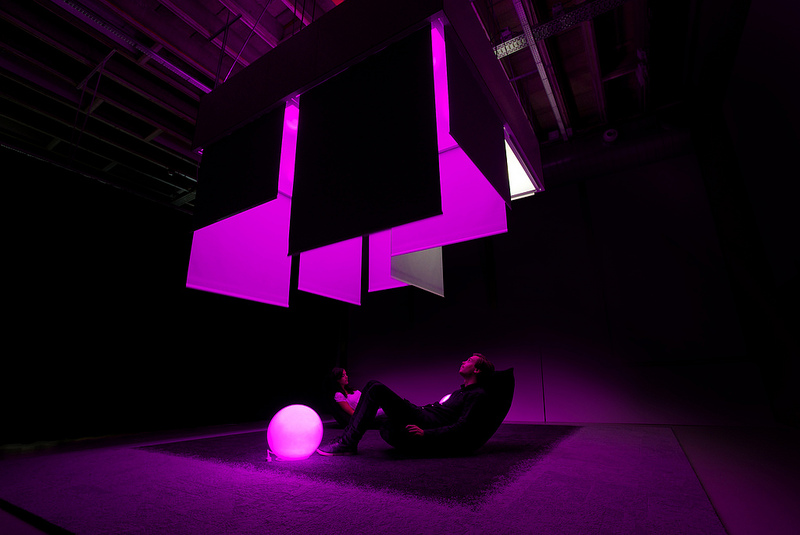
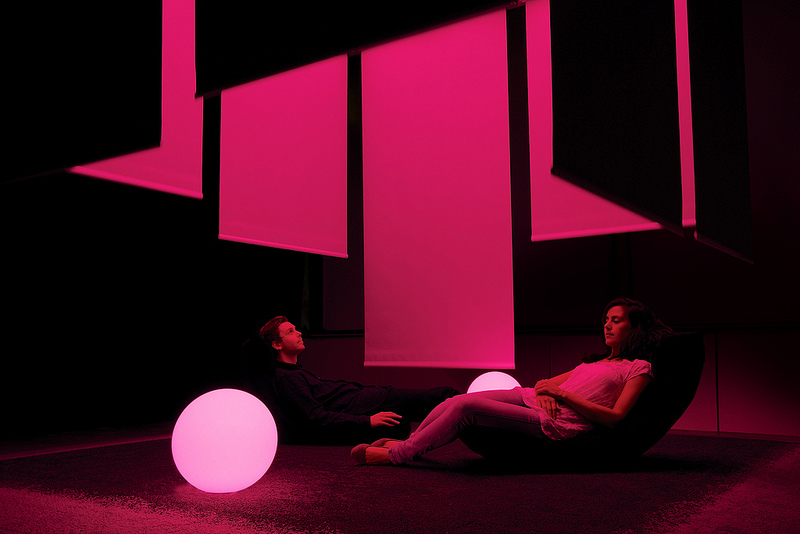
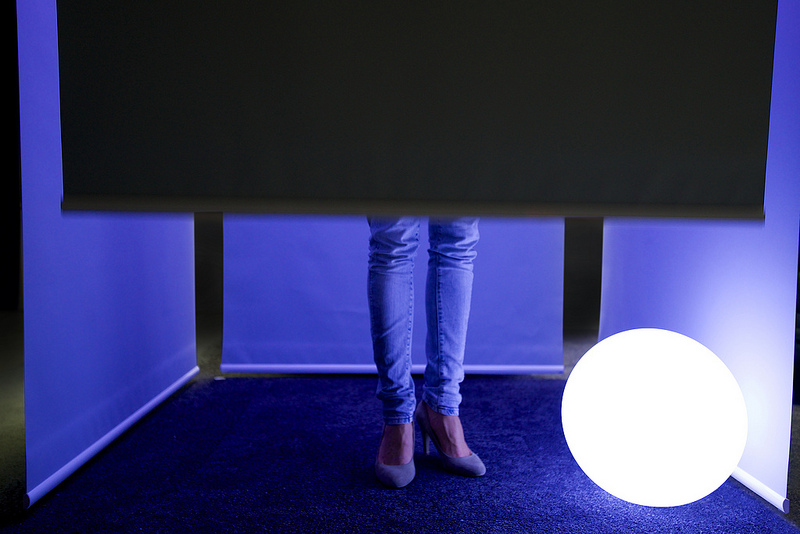
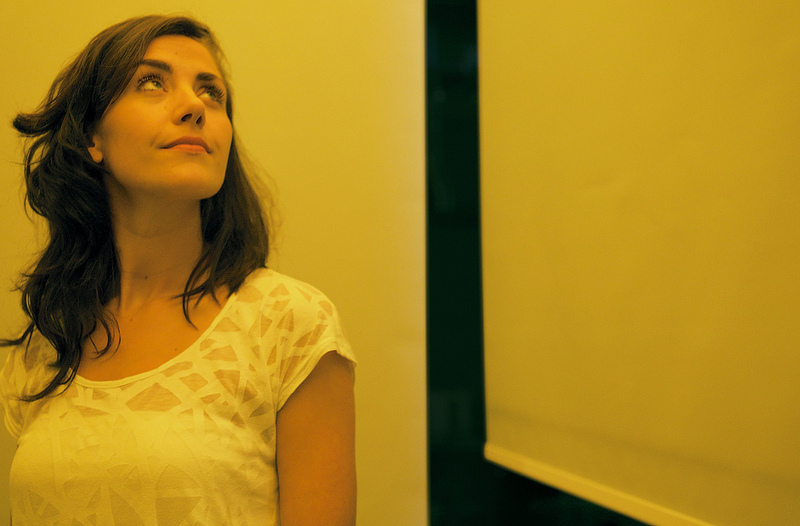



Discussion